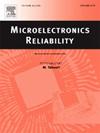通过热循环导致的电容器退化模拟 LED 驱动器的使用寿命
IF 1.6
4区 工程技术
Q3 ENGINEERING, ELECTRICAL & ELECTRONIC
引用次数: 0
摘要
本文提出了一种寿命测试方法和模型,用于预测在输出级使用电解电容的 LED 驱动器在经历循环电源/热条件后的失效时间。根据故障率估算方法和现场研究,铝电解电容器的降解可被视为 LED 驱动器和其他电力电子应用中的潜在故障点。确定电解电容器的失效模式、原因和失效前兆对于设计可靠的电力电子电路和估算特定应用中设计驱动器的使用寿命至关重要。与其他电力电子转换器一样,LED 驱动器也暴露在高温、开关和循环热条件下。以往的研究调查了电解电容在恒定热应力下的参数退化情况,但没有调查照明应用中常见的循环热条件下的参数退化情况。因此,我们选择温度和热循环作为加速因素,研究功率/热循环对 LED 驱动器中电解电容器寿命的影响。加速寿命测试表明,LED 驱动器的使用寿命与输出电容器的工作温度呈反指数关系。在热循环条件下,没有发现在测试温度范围内因热循环而引入的其他失效机制。根据实验结果,我们开发了一种数学建模技术,用于估算 LED 驱动器在不同工作曲线下因电解电容参数退化而发生故障的时间。本文章由计算机程序翻译,如有差异,请以英文原文为准。
Modeling LED driver lifespan through capacitor degradation due to thermal cycling
This paper proposes a life test method and a model to predict the time to failure of LED drivers with electrolytic capacitors at the output stage that experience cycled power/thermal conditions. Based on failure rate estimation methods and field studies, degradation of aluminum electrolytic capacitors can be considered a potential point of failure in LED drivers and other power electronic applications. It is essential to identify failure modes, causes, and precursors of failure of electrolytic capacitors to design reliable power electronic circuits and estimate the useful lifetime of the designed drivers for a given application. LED drivers are exposed to elevated temperatures, on-off switching, and cycled thermal conditions like other power electronic converters. Past studies have investigated the parametric degradation of electrolytic capacitors under constant thermal stresses but not under cycled thermal conditions commonly found in lighting applications. Therefore, temperature and thermal cycling were selected as acceleration factors to study the effects of power/thermal cycling on the life of electrolytic capacitors in LED drivers. The accelerated life test showed that the LED driver's useful life had an inverse exponential relationship to the operating temperature of the output capacitor. The thermally cycled conditions did not indicate additional failure mechanisms introduced due to thermal cycling within the tested temperature range. Based on the experimental results, we developed a mathematical modeling technique to estimate the time to failure of LED drivers due to the electrolytic capacitor's parametric degradation with different operating profiles.
求助全文
通过发布文献求助,成功后即可免费获取论文全文。
去求助
来源期刊

Microelectronics Reliability
工程技术-工程:电子与电气
CiteScore
3.30
自引率
12.50%
发文量
342
审稿时长
68 days
期刊介绍:
Microelectronics Reliability, is dedicated to disseminating the latest research results and related information on the reliability of microelectronic devices, circuits and systems, from materials, process and manufacturing, to design, testing and operation. The coverage of the journal includes the following topics: measurement, understanding and analysis; evaluation and prediction; modelling and simulation; methodologies and mitigation. Papers which combine reliability with other important areas of microelectronics engineering, such as design, fabrication, integration, testing, and field operation will also be welcome, and practical papers reporting case studies in the field and specific application domains are particularly encouraged.
Most accepted papers will be published as Research Papers, describing significant advances and completed work. Papers reviewing important developing topics of general interest may be accepted for publication as Review Papers. Urgent communications of a more preliminary nature and short reports on completed practical work of current interest may be considered for publication as Research Notes. All contributions are subject to peer review by leading experts in the field.
 求助内容:
求助内容: 应助结果提醒方式:
应助结果提醒方式:


